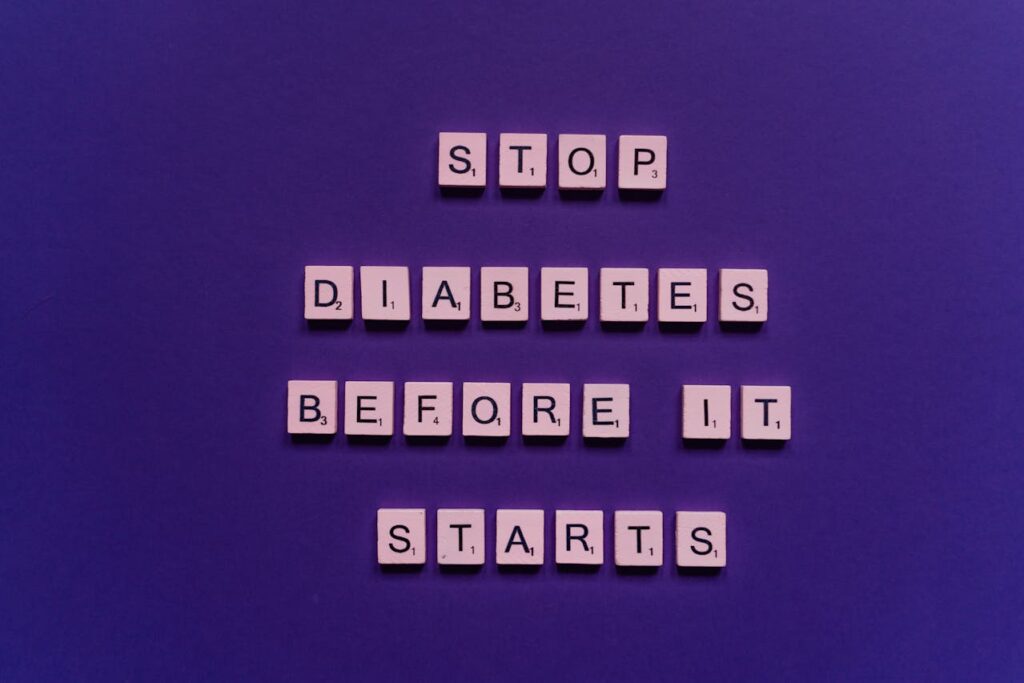Prediabetes is a serious health condition where blood sugar levels are higher than normal but not high enough to be classified as type 2 diabetes. If left unmanaged, prediabetes can progress to diabetes, which can lead to complications like heart disease, kidney issues, and nerve damage. But here’s the good news: with lifestyle changes, including diet, you can prevent or even reverse prediabetes.
One diet that’s gaining popularity for managing prediabetes is the keto diet. If you’re wondering “Does keto help prediabetes?”, “Is a keto diet good for prediabetes?”, or “Is keto diet safe for prediabetes?”, this article will answer all your questions.
What is the Keto Diet?
The keto diet (ketogenic diet) is a high-fat, moderate-protein, and very low-carbohydrate diet. The goal of the keto diet is to shift your body from burning glucose (sugar) for energy to burning fat. This process is known as ketosis.
Macronutrient Breakdown of the Keto Diet:
- Fats: 70-80% of daily calories
- Proteins: 15-20% of daily calories
- Carbohydrates: 5-10% of daily calories (typically 20-50 grams of carbs per day)
How Does Keto Diet Work?
When you drastically reduce your carb intake, your body runs out of glucose to use for energy. It then starts breaking down fat into molecules called ketones, which become the new source of fuel for your body and brain. This shift to burning fat for energy instead of sugar can help regulate blood sugar levels, which is why many people believe that the keto diet is beneficial for prediabetes.
Does Keto Help Prediabetes?
Yes, research suggests that the keto diet can be helpful for managing prediabetes. Here’s how:
1. Improves Blood Sugar Control
When you eat carbohydrates, they are broken down into sugar, which raises blood glucose levels. By reducing carb intake, the keto diet minimizes blood sugar spikes, leading to better glycemic control.
2. Reduces Insulin Resistance
Insulin resistance is a hallmark of prediabetes. It means your body’s cells don’t respond well to insulin, a hormone that helps regulate blood sugar. The keto diet has been shown to reduce insulin resistance, making it easier for your body to manage blood sugar levels effectively.
3. Promotes Weight Loss
Being overweight is a significant risk factor for prediabetes. The keto diet promotes rapid weight loss by burning fat for energy, which can reduce the risk of progressing to type 2 diabetes.
4. Lowers Inflammation
Chronic inflammation is linked to insulin resistance and prediabetes. The keto diet, rich in anti-inflammatory fats like omega-3s from fish and nuts, may help reduce inflammation and improve metabolic health.
Is a Keto Diet Good for Prediabetes?
For many people, the answer is yes. The keto diet can be an effective tool for reversing prediabetes and improving overall metabolic health. However, it’s important to remember that every individual is different. While some people may experience significant benefits from keto, others may need a different approach.
Benefits of the Keto Diet for Prediabetes:
- Stabilizes Blood Sugar Levels: With fewer carbs, there are fewer spikes in blood sugar.
- Supports Fat Loss: Losing abdominal fat can improve insulin sensitivity.
- Improves Energy Levels: Once your body adapts to ketosis, many people report more stable energy throughout the day.
- Reduces Cravings: High-fat meals tend to be more satiating, which can reduce sugar cravings.
Is Keto Diet Safe for Prediabetes?
While the keto diet can be safe and beneficial for people with prediabetes, it’s essential to approach it carefully and with the guidance of a healthcare professional. Here are some safety considerations:
1. Electrolyte Imbalance
When you start the keto diet, you may lose water weight rapidly, which can lead to an imbalance of electrolytes like sodium, potassium, and magnesium. To avoid this, make sure to:
- Drink plenty of water.
- Include electrolyte-rich foods like leafy greens, nuts, and seeds.
- Consider taking a magnesium supplement.
2. Keto Flu
Some people experience flu-like symptoms when starting the keto diet, including fatigue, headaches, and irritability. This usually happens as your body adapts to using ketones for energy instead of glucose. To minimize symptoms:
- Gradually reduce your carb intake instead of cutting them out all at once.
- Stay hydrated and get enough electrolytes.
3. Monitoring Blood Sugar Levels
Since the keto diet can significantly lower blood sugar, it’s important to monitor your levels regularly, especially if you’re taking medication for blood sugar control. Hypoglycemia (low blood sugar) can be dangerous.
Foods to Eat on a Keto Diet for Prediabetes
If you decide to try the keto diet, it’s important to focus on nutrient-dense, whole foods. Here’s a list of keto-friendly foods:
Healthy Fats
- Avocados
- Olive oil
- Coconut oil
- Nuts and seeds (almonds, walnuts, chia seeds, flaxseeds)
- Fatty fish (salmon, mackerel, sardines)
Low-Carb Vegetables
- Leafy greens (spinach, kale, lettuce)
- Broccoli
- Cauliflower
- Zucchini
- Bell peppers
Protein Sources
- Eggs
- Poultry (chicken, turkey)
- Beef and pork
- Tofu and tempeh
- Cheese
Beverages
- Water
- Herbal teas
- Black coffee (unsweetened)
Foods to Avoid on a Keto Diet for Prediabetes
Certain foods are high in carbs and can spike blood sugar levels. Avoid these foods on the keto diet:
- Sugary foods (candy, cakes, cookies)
- Grains (bread, pasta, rice)
- Starchy vegetables (potatoes, corn)
- Fruits high in sugar (bananas, apples, grapes)
- Sugary drinks (soda, fruit juices)
YOU MAY ALSO LIKE: Dangers of Ketosis for Diabetics: Understanding the Risks
Tips for Success on the Keto Diet
- Plan Your Meals: Planning ahead can help you stay on track and avoid high-carb temptations.
- Track Your Macros: Use a food tracking app to monitor your daily intake of fats, proteins, and carbs.
- Stay Hydrated: Drink plenty of water throughout the day to prevent dehydration.
- Listen to Your Body: Pay attention to how you feel. If something doesn’t feel right, adjust your diet or consult a healthcare professional.
Conclusion: Is Keto Diet Good for Prediabetes?
The keto diet can be an effective way to manage and even reverse prediabetes. It helps stabilize blood sugar levels, reduce insulin resistance, promote weight loss, and improve overall metabolic health. However, it’s essential to approach it carefully and seek guidance from a healthcare professional, especially if you have other health conditions.
If you’re looking for a way to take control of your blood sugar and prevent diabetes, the keto diet might be worth considering. With the right approach, you can improve your health and enjoy a better quality of life.


